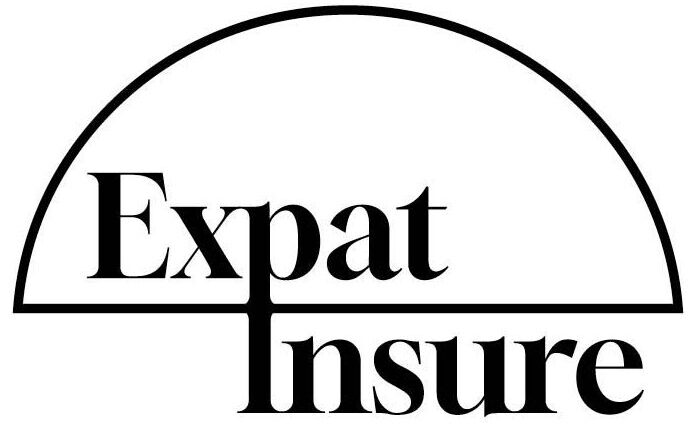
Expat Guide: Moving to France
Moving to France as an expatriate is an enchanting prospect, offering a blend of rich culture, exquisite cuisine, and beautiful landscapes. However, alongside the excitement of relocating, it\’s essential to navigate the complexities of expat healthcare insurance in France, which is known for its high-quality healthcare system, but doing this in a foreign language, can be daunting. So, read on and see how we can help.
Healthcare in France
France\’s healthcare system is among the best in the world, providing both public and private healthcare services. The system is largely funded by a government national health insurance program. However, for expatriates, especially those not employed in France, understanding the nuances of healthcare coverage is crucial.

Key Considerations for Expat Healthcare Insurance in France
1. Public Health Insurance Eligibility: Depending on your residency status and employment situation in France, you may be eligible for the state healthcare system (Protection Universelle Maladie – PUMA). However, this usually applies after three months of residency or upon gaining employment.
2. Private Health Insurance: Many expats opt for private health insurance to cover the initial period before they are eligible for state coverage or to supplement state insurance. Private insurance can offer more extensive coverage and shorter waiting times.
3. Top-Up Insurance (Mutuelle): Even within the state system, some costs are not fully covered. A \’mutuelle\’ or top-up policy can cover the remaining out-of-pocket expenses. Providers like Amariz provide this sort of top up insurance.
4. European Health Insurance Card (EHIC): If you\’re temporarily relocating from another EU country, the EHIC allows you access to healthcare at the same cost as French residents.
5. Choosing the Right Policy: Factors to consider include coverage extent, whether the policy is compliant with French visa requirements, coverage of pre-existing conditions, and ease of access to English-speaking doctors.
Healthcare Costs and Reimbursements
In France, healthcare costs are partially covered by the state. The reimbursement rate for doctor visits, hospitalization, and prescriptions typically ranges from 70-100%, depending on the treatment. Having supplementary private or top-up insurance ensures that the remaining costs are covered.

What to Consider When Choosing a Policy
- Comprehensiveness: Ensure that your policy covers a wide range of medical services including hospitalization, GP and specialist visits, diagnostics, maternity, and dental care.
- Direct Billing: Some insurance policies offer direct billing, which means the insurer pays the healthcare provider directly, minimizing out-of-pocket payments.
- Coverage for Pre-existing Conditions: Check if your policy covers pre-existing medical conditions, as some might not or may require a waiting period.
- Flexibility and Portability: If you plan to travel, consider whether your insurance offers international coverage.
Health Insurance for Visa Applications
For those moving to France, obtaining a visa often requires proof of adequate health insurance. This is especially relevant for non-EU expats who must show they have health insurance coverage that meets specific criteria. SO, make sure you buy before you fly, or you may be refused entry in to the country. For more information on what is required for visas visit the French government website here.

After the Move: Navigating the French Healthcare System
Accessing the French medical system as an expat involves understanding a blend of public and private healthcare services. France\’s healthcare system, known for its efficiency and quality, is accessible to residents through a combination of state healthcare and optional supplementary insurance. Here\’s a guide to navigating it:
- Registering for Healthcare: Upon becoming a resident, you should register with the French social security system to access healthcare services. This involves obtaining a social security number and enrolling in the \’Protection Universelle Maladie\’ (PUMA) for continuous healthcare coverage.
- Carte Vitale: Once registered, you\’ll receive a \’Carte Vitale\’, a green health insurance card essential for accessing healthcare services. It contains your personal details and social security number, and you should present it at medical appointments and pharmacies to have your expenses directly reimbursed.
- Choosing a Doctor: In France, you\’re encouraged to choose a \’médecin traitant\’ (find a primary care doctor), who will be your first point of contact for healthcare needs and referrals to specialists. This choice is not binding and can be changed at any time.
- Supplementary Insurance: While the state healthcare system covers a substantial part of medical costs, many residents opt for a \’mutuelle\’ or complementary health insurance to cover the remaining costs, including those not fully reimbursed by the state, like dental and optical care.
- Accessing Specialists: For specialist care, you typically need a referral from your primary care doctor. However, some specialists, like gynecologists or ophthalmologists, can be accessed directly.
- Pharmacies and Prescriptions: Pharmacies are widely available, and prescription costs are partially reimbursed by the state. Presenting your \’Carte Vitale\’ will facilitate this process.
- Emergency Services: In emergencies, go to the nearest hospital (\’hôpital\’) emergency department (\’urgence\’). Emergency care is provided to everyone, irrespective of their insurance status. if you need urgent care click here for the US embassy details on what you should do.
- Understanding the System: Keep all healthcare receipts (\’feuilles de soins\’) for reimbursements and insurance claims. Familiarize yourself with the terms \’tiers payant\’ (direct billing) and \’dépassements d\’honoraires\’ (extra fees charged by some doctors).
Navigating the French healthcare system as an expat involves initial administrative steps, but once set up, you\’ll have access to a high-quality, comprehensive healthcare system. It\’s advisable to learn basic French healthcare terms and maintain open communication with healthcare providers to ensure smooth access to services.
